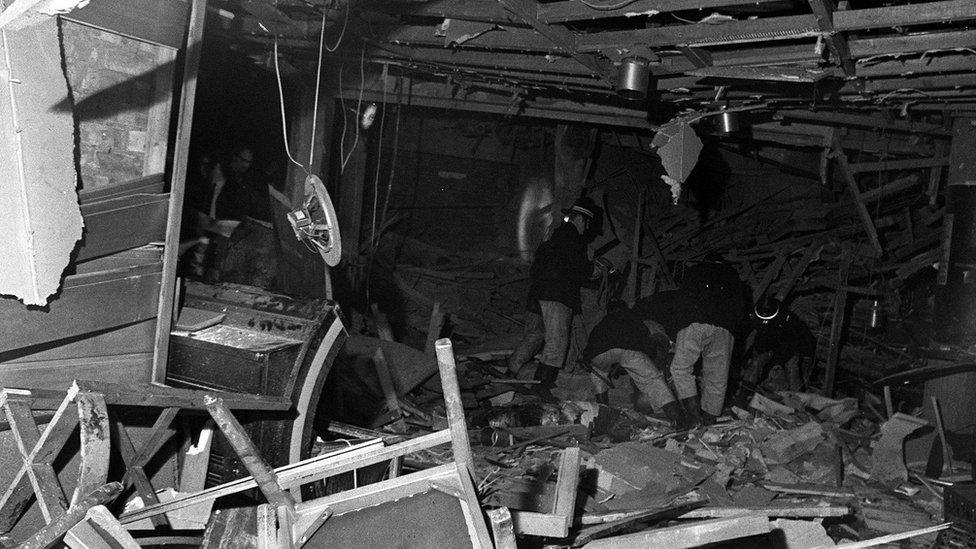Birmingham pub bombings: Police numbers 'just 15' on the night
- Published
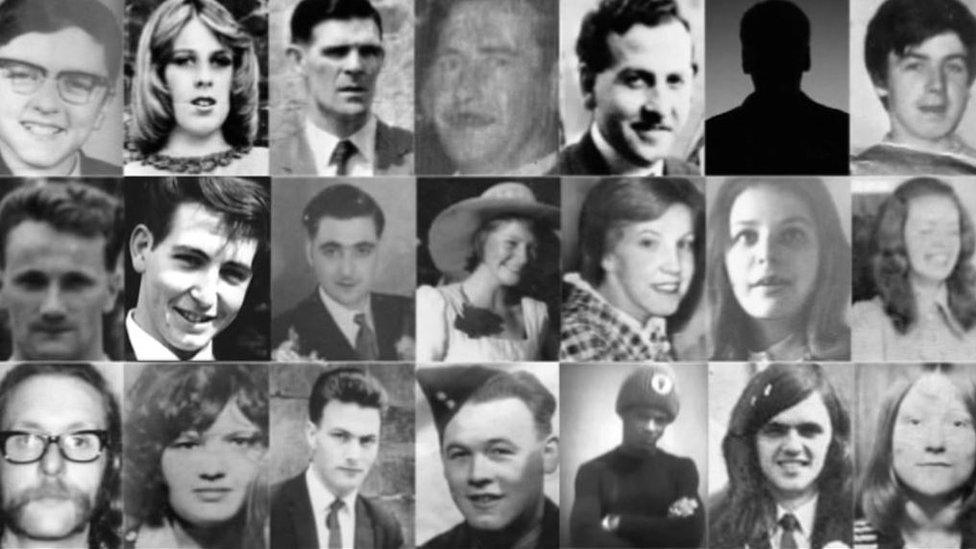
Twenty-one people died when two bombs were detonated in Birmingham in 1974
There were just 15 police officers covering Birmingham city centre on the night of the 1974 pub bombings, the inquests heard.
West Midlands Police resources had been diverted to cover funeral transport for an Irish Republican Army (IRA) bomber, the Birmingham jury hearing was told.
Twenty-one people were killed when two bombs detonated at the Mulberry Bush and Tavern in the Town pubs.
Up to 135 officers had been redeployed to cover the funeral operation.
They had been taken from "A division", leaving 10 officers at Digbeth station and five more in Steelhouse Lane, on 21 November.
That night West Midlands Police had deployed 1,680 uniformed officers for the funeral operation, while 352 officers from Staffordshire, West Mercia and Warwickshire forces were held in reserve, Birmingham Civil Justice Centre heard.
Coroner Sir Peter Thornton said the "two explosions" ripped apart two pubs on what was a "perfectly ordinary evening".
The inquests were told bomber James McDade died while planting a bomb at the Coventry telephone exchange a week before the Birmingham explosions.
Security arrangements for the cortege taking his remains to Birmingham Airport for a flight back to Dublin were made on the night of the bombings.
Jurors, who have visited the sites of both pubs, heard they were busy that night, with 40 to 50 people in the Mulberry Bush and 200 in the Tavern in the Town. The blasts, just minutes apart, brought "devastation", jurors heard.
Witness David Grafton, who was in Tavern in the Town with his friend John, said: "A flashing light and a boom and next thing I know I'm lying on the floor, not a sound at first, pitch black, not knowing where I was, then screaming and pandemonium.
"The force of the explosion knocked me off my feet and knocked me out. Then the noise of panic, of screaming in pain, the whole room was chaos."
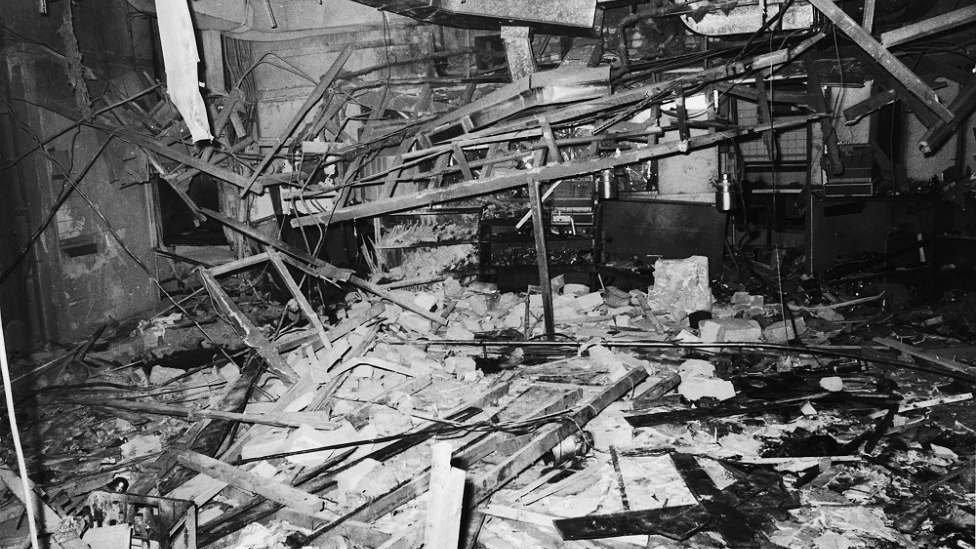
Ten people were killed in the Mulberry Bush explosion
At the time the West Midlands was in the grip of an IRA bombing campaign with 53 separate explosive and incendiary devices used between 1973 and the pub attacks, the hearing was told.
A report on the bombings by a chief superintendent said the first police officers to be pulled back from the McDade funeral detail only arrived at 21:10 GMT - 59 minutes after a warning call had been made.
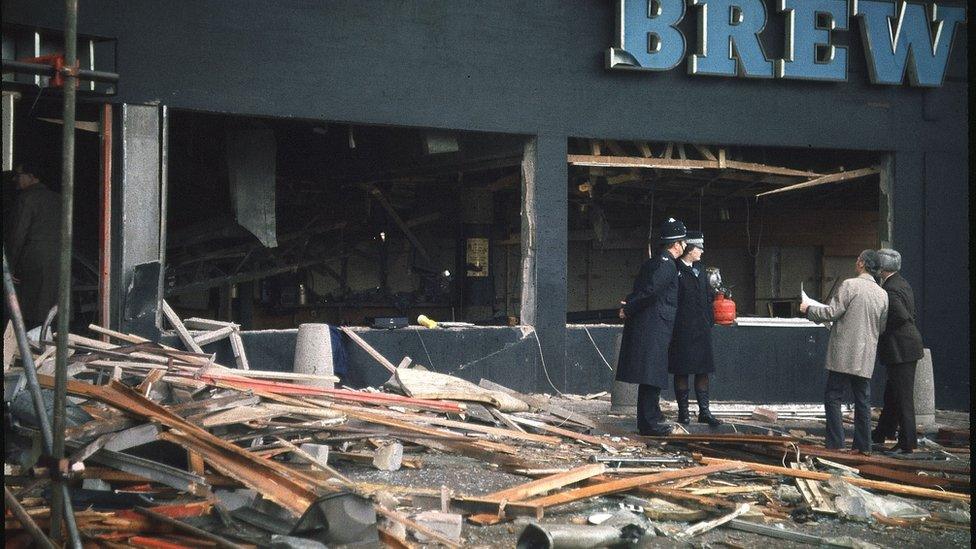
Ten people died in the first blast at the Mulberry Bush, below the Rotunda building
In an official police report, a force superintendent said: "The bomb incidents in Birmingham occurred while the city centre was denuded of uniformed police officers who were engaged at Birmingham Airport, but it is felt that this in no way affected the organisation and efficiency of the police at the scenes.
"On receipt of information at the airport that serious incidents had occurred in Birmingham city centre, the A division contingent and special patrol group were immediately directed there, thus providing more officers at short notice than would normally have been available."
The report and other documents on officer numbers were formally introduced as evidence by Anthony Mole, an ex-police officer with 30 years' experience and unconnected with events, who is giving professional evidence to the hearings.
It stated officer numbers had been "partly achieved by reducing strength of second day watch and night duty", leaving the nearest police station with just six constables, to respond to city centre incidents.
The jury heard Digbeth police station had sent 60 constables to the funeral arrangements.

Coroner Sir Peter Thornton (right) at King Edward House as it is today during the site visit
The jury made up of six women and five men have visited the site of the Mulberry Bush pub - which was close to the city's iconic Rotunda.
They group also walked past the Odeon cinema, in New Street, site of the basement Tavern in the Town in King Edward House. The building now houses a Chinese buffet restaurant.
The inquests continues.

Follow BBC West Midlands on Facebook, external, on Twitter, external, and sign up for local news updates direct to your phone., external
- Published26 February 2019
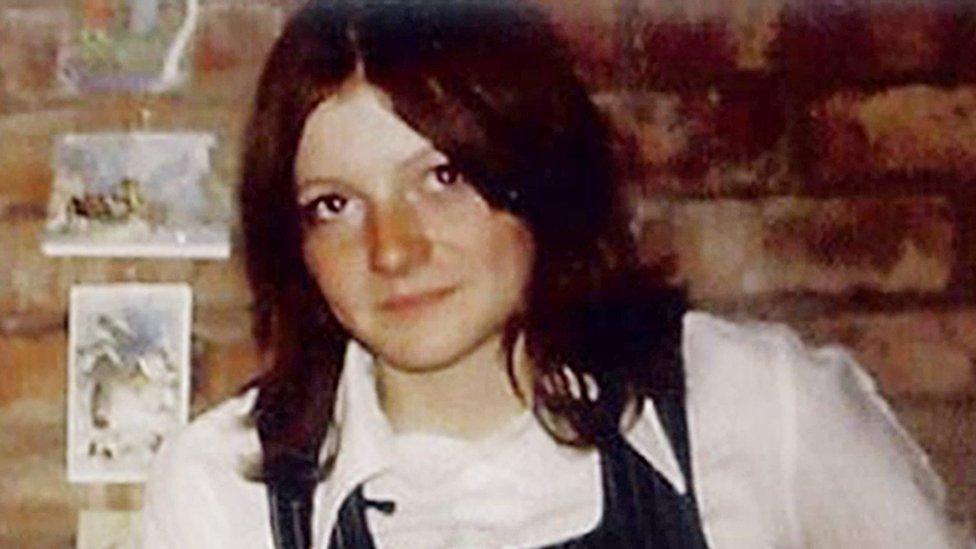
- Published25 February 2019
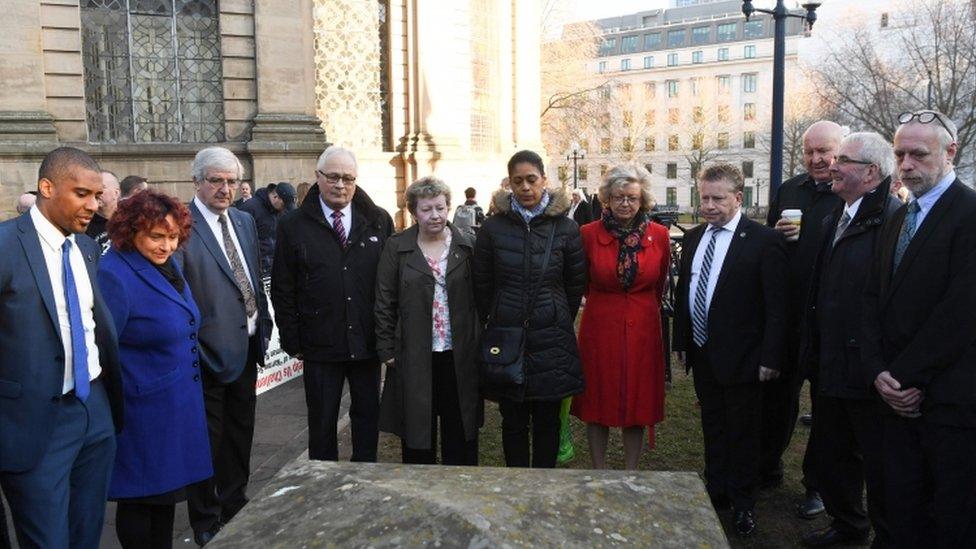
- Published25 February 2019
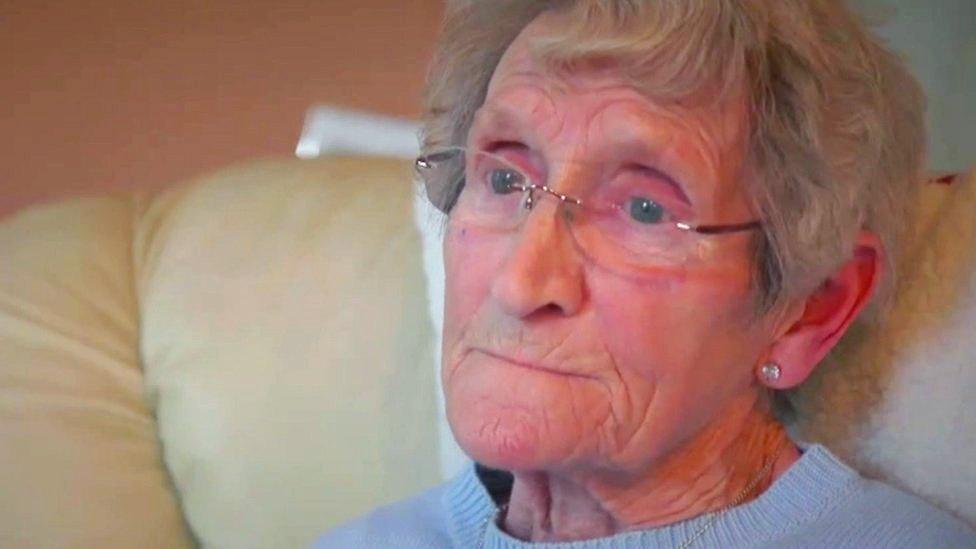
- Published17 January 2019
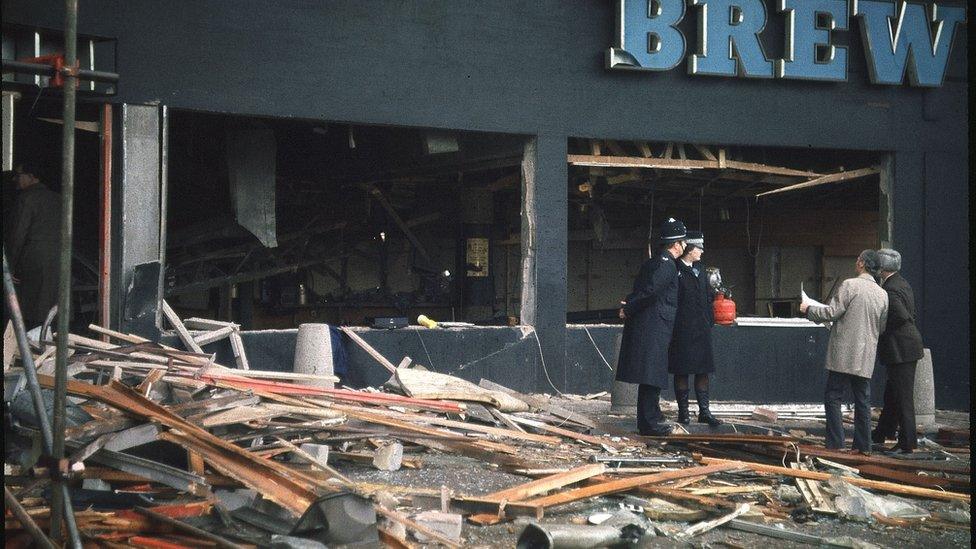
- Published26 September 2018

- Published12 March 2019
